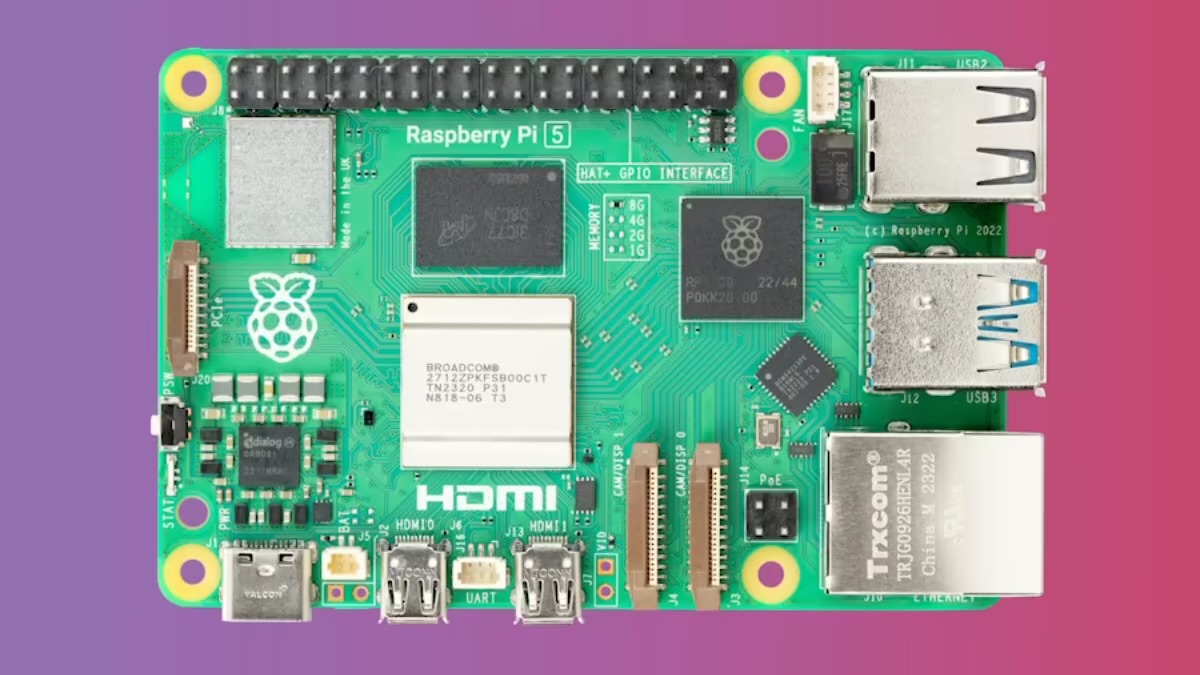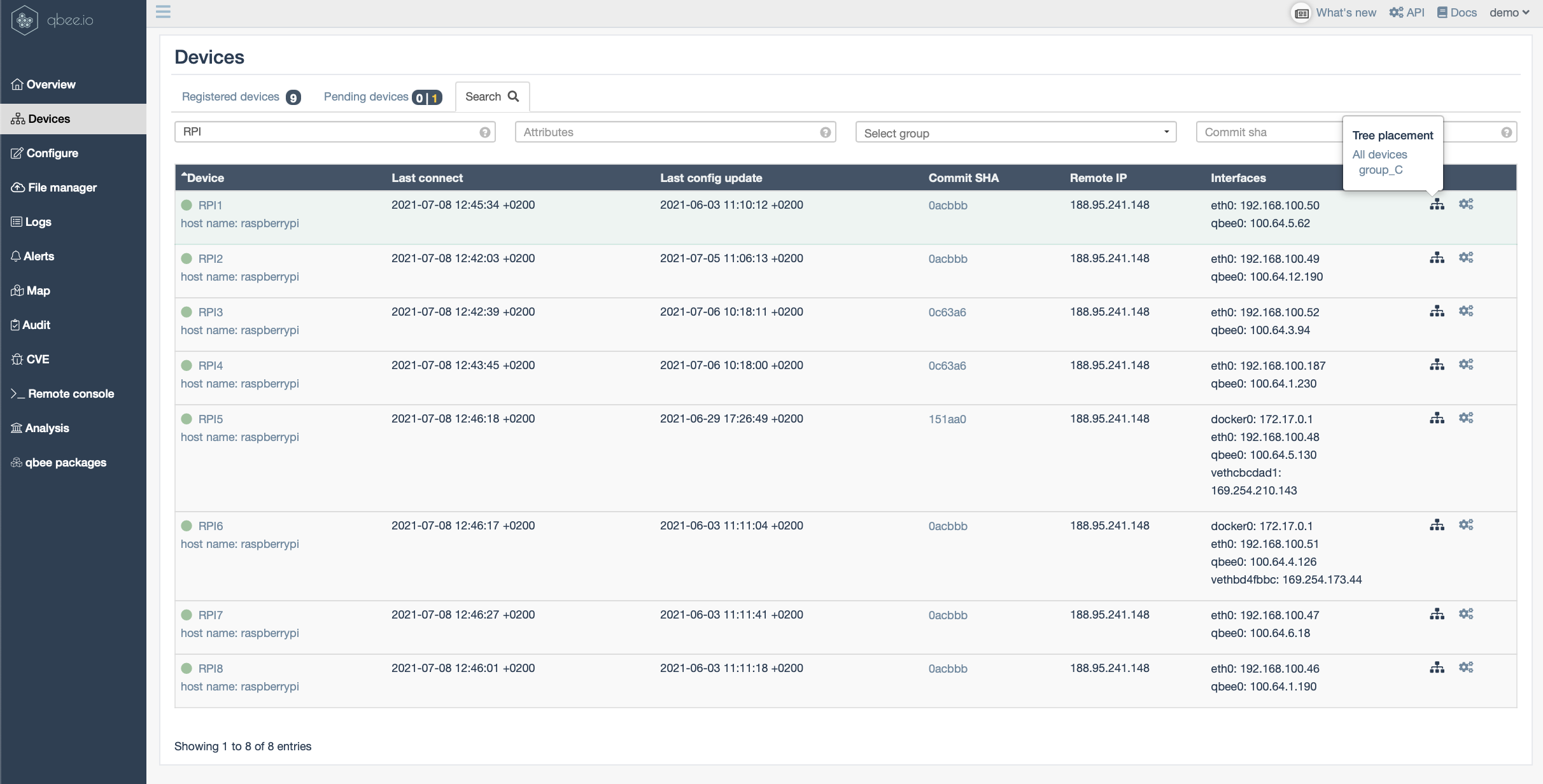In the era of technological advancement, the Raspberry Pi has become a cornerstone for innovation, offering endless possibilities for developers, hobbyists, and educators alike. If you're looking to harness the full potential of your Raspberry Pi device, managing it efficiently is essential. Thankfully, there are numerous Raspberry Pi device management software options available for free, enabling you to streamline your projects and simplify operations. This article will guide you through everything you need to know about managing Raspberry Pi devices effectively.
Whether you're a beginner or an experienced user, understanding how to manage your Raspberry Pi device can significantly enhance your productivity. From remote access to automated updates, these free tools provide a robust framework to manage multiple Raspberry Pi devices simultaneously. With the growing demand for IoT solutions, having the right management software is no longer a luxury but a necessity.
This comprehensive guide will explore the best Raspberry Pi device management software available for free. We'll also delve into their features, benefits, and how they can transform your projects. By the end of this article, you'll have the knowledge and tools necessary to choose the perfect software for your needs.
Read also:Cameron Brink
Table of Contents
- Introduction to Raspberry Pi Device Management
- Benefits of Using Raspberry Pi Device Management Software
- Top Raspberry Pi Device Management Software Free Options
- Balena Cloud: A Comprehensive Solution
- Fleet: Lightweight and Efficient
- Remote Access Solutions
- Ensuring Security in Device Management
- Comparison of Popular Software
- Tips for Choosing the Right Software
- The Future of Raspberry Pi Management
Introduction to Raspberry Pi Device Management
Raspberry Pi device management software plays a pivotal role in optimizing the performance of your projects. These tools allow you to monitor, configure, and update your devices remotely, saving time and effort. With the increasing complexity of projects, having a centralized platform to manage multiple Raspberry Pi devices is crucial for maintaining efficiency.
Device management software offers features such as automated updates, centralized logging, and real-time monitoring. These capabilities ensure that your devices remain up-to-date and secure, reducing the risk of downtime or security breaches. Additionally, these tools often come with user-friendly interfaces, making them accessible to users of all skill levels.
Benefits of Using Raspberry Pi Device Management Software
Implementing Raspberry Pi device management software brings numerous advantages to your projects. Here are some key benefits:
- Remote Access: Manage your devices from anywhere in the world.
- Automated Updates: Ensure your devices are always running the latest software versions.
- Centralized Control: Monitor and control multiple devices from a single platform.
- Improved Security: Implement robust security measures to protect your devices.
- Cost-Effective: Many options are available for free, saving you money.
Top Raspberry Pi Device Management Software Free Options
1. Balena Cloud
Balena Cloud is one of the most popular Raspberry Pi device management software solutions available for free. It offers a comprehensive platform for managing IoT devices, including Raspberry Pi. With features such as over-the-air updates, remote debugging, and containerized applications, Balena Cloud provides a powerful toolset for developers.
2. Fleet
Fleet is a lightweight and efficient device management solution designed specifically for Raspberry Pi devices. It focuses on simplicity and ease of use, making it ideal for beginners. Fleet allows you to manage multiple devices from a single dashboard, providing essential features such as remote access and software updates.
3. Resin.io
Resin.io, now part of Balena, offers a robust platform for managing IoT devices. It provides features such as automated builds, secure connections, and real-time monitoring. While the free tier offers limited functionality, it is sufficient for most personal and small-scale projects.
Read also:Margaret Brennan
Balena Cloud: A Comprehensive Solution
Balena Cloud stands out as a comprehensive solution for Raspberry Pi device management. Its key features include:
- Over-the-Air Updates: Keep your devices up-to-date with automatic software updates.
- Containerized Applications: Deploy applications using Docker containers for increased security and scalability.
- Remote Debugging: Troubleshoot issues remotely without physical access to the device.
- Centralized Dashboard: Manage all your devices from a single, intuitive interface.
With its robust feature set and active community support, Balena Cloud is an excellent choice for managing Raspberry Pi devices.
Fleet: Lightweight and Efficient
Fleet is a lightweight device management solution that prioritizes simplicity and efficiency. Its key features include:
- Remote Access: Access your devices from anywhere using a web-based interface.
- Software Updates: Automate the process of updating your devices with the latest firmware.
- Monitoring: Keep track of device performance and status in real-time.
Fleet is an ideal choice for users who prefer a straightforward, no-frills approach to device management.
Remote Access Solutions
Remote access is a critical feature of any Raspberry Pi device management software. It allows you to interact with your devices without being physically present. Popular remote access solutions include:
- SSH: Secure Shell provides a secure method for remote access and command execution.
- VNC: Virtual Network Computing enables graphical remote access to your devices.
- Web-Based Interfaces: Many management software solutions offer web-based dashboards for easy access.
Choosing the right remote access solution depends on your specific needs and preferences.
Ensuring Security in Device Management
Security is a top priority when managing Raspberry Pi devices. Implementing robust security measures is essential to protect your devices from unauthorized access and potential threats. Some best practices include:
- Use Strong Passwords: Ensure that all accounts have strong, unique passwords.
- Enable Two-Factor Authentication: Add an extra layer of security to your accounts.
- Regular Updates: Keep your devices and software up-to-date with the latest security patches.
- Network Segmentation: Isolate your devices on a separate network to reduce the risk of attacks.
By following these practices, you can significantly enhance the security of your Raspberry Pi devices.
Comparison of Popular Software
When choosing Raspberry Pi device management software, it's essential to compare the features and capabilities of different options. Below is a comparison of some popular software:
| Software | Features | Price | Best For |
|---|---|---|---|
| Balena Cloud | Over-the-air updates, containerized applications, remote debugging | Free (limited features) | Developers and advanced users |
| Fleet | Remote access, software updates, monitoring | Free | Beginners and lightweight projects |
| Resin.io | Automated builds, secure connections, real-time monitoring | Free (limited features) | IoT projects and enterprises |
Tips for Choosing the Right Software
Selecting the right Raspberry Pi device management software can be challenging. Here are some tips to help you make an informed decision:
- Assess Your Needs: Identify the specific requirements of your project and choose software that meets those needs.
- Consider Scalability: Ensure that the software can grow with your project and support additional devices if needed.
- Read Reviews: Research user reviews and feedback to gauge the reliability and performance of the software.
- Test Before Committing: Take advantage of free trials or open-source options to test the software before making a final decision.
The Future of Raspberry Pi Management
As technology continues to evolve, the future of Raspberry Pi device management looks promising. Emerging trends such as edge computing, artificial intelligence, and 5G connectivity will play a significant role in shaping the next generation of management software. These advancements will enable more sophisticated and efficient management of IoT devices, further enhancing the capabilities of Raspberry Pi projects.
Developers are continuously working on improving existing software and creating new tools to meet the growing demands of the IoT industry. By staying informed about these developments, you can ensure that your projects remain at the cutting edge of technology.
Kesimpulan
Raspberry Pi device management software is an essential tool for anyone working with Raspberry Pi devices. Whether you're managing a single device or a network of multiple devices, the right software can significantly enhance your productivity and efficiency. By exploring the options discussed in this article, you can find the perfect solution for your needs.
We encourage you to share your thoughts and experiences in the comments section below. Your feedback helps us improve and provides valuable insights for other readers. Additionally, don't forget to explore our other articles for more information on Raspberry Pi and related technologies. Together, let's continue to innovate and push the boundaries of what's possible with Raspberry Pi!
Data Source: Raspberry Pi Foundation, Balena Cloud, Fleet


